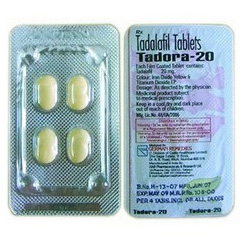Cialis is a prescription medication used to treat erectile dysfunction (ED) and symptoms of benign prostatic hyperplasia (BPH) in men. Its active ingredient, tadalafil, belongs to a class of drugs called phosphodiesterase type 5 inhibitors (PDE5 inhibitors). Cialis works by increasing blood flow to the penis, allowing for a firm and lasting erection.
Avoiding Risks with Cialis
Cialis should not be taken by individuals who:
- are allergic to tadalafil or any other ingredients in the medication
- take medications containing nitrates
- have a history of heart disease or unstable angina
- have had a recent heart attack or stroke
- have low blood pressure
- have liver or kidney problems
Potential Side Effects
Common side effects of Cialis may include:
- headache
- stuffy or runny nose
- upset stomach
- back pain
- muscle aches
- flushing
Less common, but more serious side effects may include:
- changes in vision or sudden vision loss
- ringing in the ears or sudden hearing loss
- chest pain or irregular heartbeat
- shortness of breath
- seizures
Administration
To get the maximum benefit from Cialis, it is important to follow these guidelines:
- Take Cialis as directed by your healthcare provider. The usual recommended dose is 10mg, taken prior to anticipated sexual activity.
- Cialis can be taken with or without food.
- If you miss a dose, take it as soon as you remember. However, if it is close to the time for your next dose, skip the missed dose and continue with your regular dosing schedule.
- Do not take more than one dose of Cialis in a 24-hour period to avoid the risk of overdose.
- In case of an overdose, seek immediate medical attention. Symptoms may include severe dizziness, fainting, or priapism (a prolonged and painful erection).
Cialis and Other Medications
Cialis may interact with certain medications, which can affect its effectiveness or increase the risk of side effects. It is important to inform your doctor about all the medications you are taking, including prescription and over-the-counter drugs, vitamins, and herbal supplements. Some common medications that may interact with Cialis include:
| Medication | Type of Interaction |
|---|---|
| Nitrates (e.g., nitroglycerin) | Severe interaction: can cause a dangerous decrease in blood pressure |
| Alpha-blockers (e.g., doxazosin) | Moderate interaction: can cause a drop in blood pressure |
| Antifungal medications (e.g., ketoconazole) | Moderate interaction: can increase the levels of Cialis in the blood |
| HIV protease inhibitors (e.g., ritonavir) | Moderate interaction: can increase the levels of Cialis in the blood |
Inquiring About Cialis
- Q: Can I take Cialis if I have a heart condition?
- Q: Can I drink alcohol while taking Cialis?
- Q: How long does Cialis stay in your system?
- Q: Can I take Cialis with food?
- Q: Is Cialis available in generic form?
A: It is important to consult with your healthcare provider if you have any heart conditions before taking Cialis. They will evaluate your medical history and determine if it is safe for you.
A: Although Cialis does not interact directly with alcohol, excessive alcohol consumption can increase the risk of certain side effects. It is best to limit alcohol intake while taking Cialis.
A: The effects of Cialis can last up to 36 hours. However, the duration may vary depending on the individual.
A: Yes, Cialis can be taken with or without food. However, taking it with a high-fat meal may delay the onset of its effects.
A: Yes, generic versions of Cialis, containing tadalafil, are available. They are generally more affordable than the brand-name medication.






Reviews
There are no reviews yet.